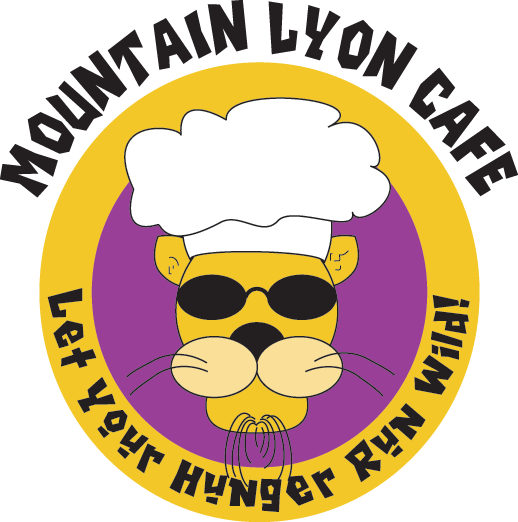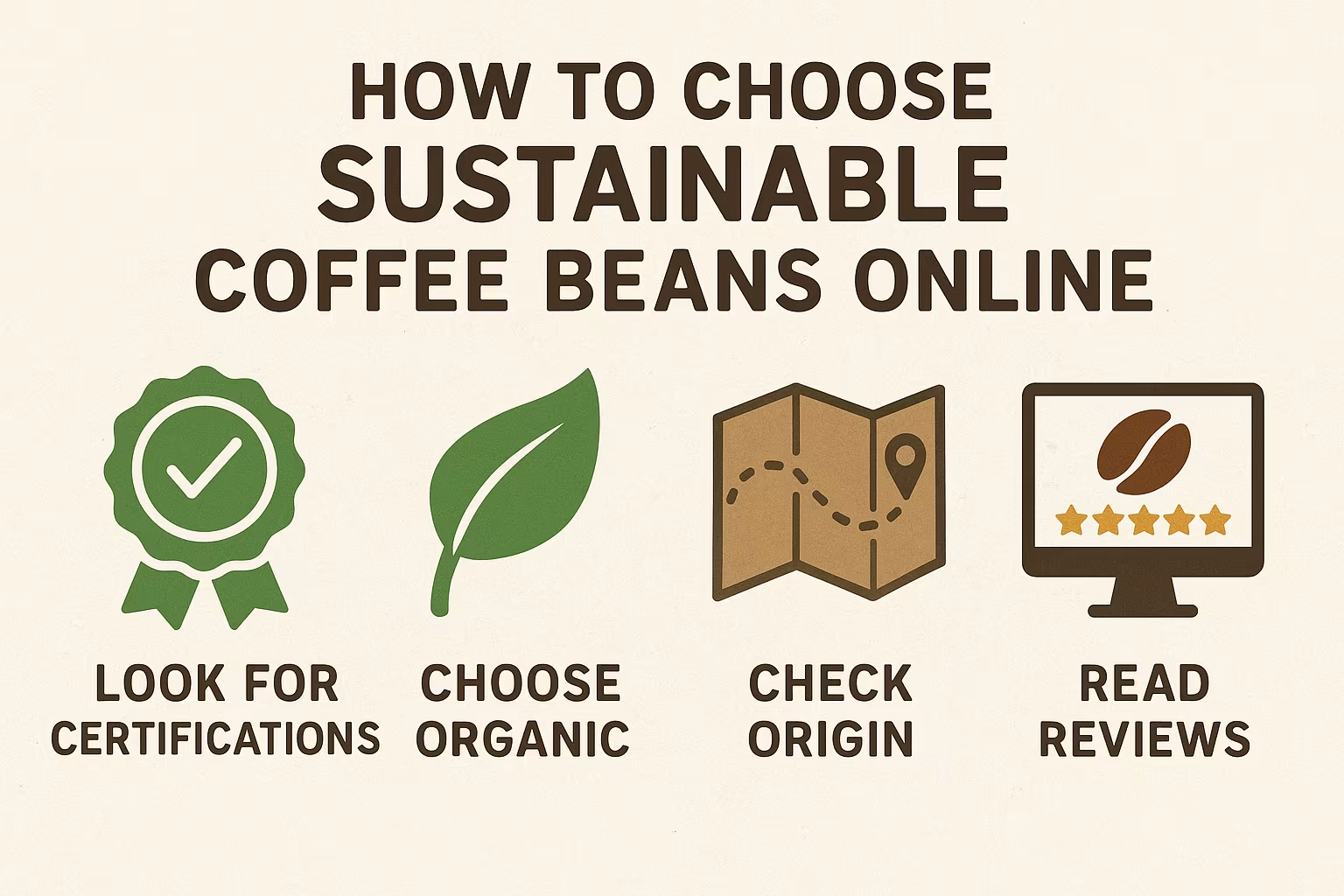Learn how to choose sustainable coffee beans online with our expert guide. Explore certifications, ethical sourcing, eco-friendly brands, and tips for buying coffee that’s both delicious and environmentally responsible.
How to Choose Sustainable Coffee Beans Online
Coffee is more than just a morning ritual; it is a global industry that touches millions of lives. When we ask how to choose sustainable coffee beans online, we are not only making a decision about flavor but also about the environment, farming communities, and our role as conscious consumers. With growing awareness of climate change, deforestation, and unfair trade practices, sustainable coffee has become a necessity rather than a trend. Choosing the right beans ensures that every cup you brew supports both your taste buds and the planet.
Why Choosing Sustainable Coffee Beans Matters
The demand for coffee continues to rise, but unsustainable farming practices can cause lasting harm. From deforestation in South America to soil erosion in Africa, coffee production has real consequences. By purchasing sustainable coffee beans online, you align your daily ritual with global responsibility.
The Environmental Impact of Coffee Production
Traditional coffee farming often involves clear-cutting forests to make room for sun-grown plantations. This practice leads to:
Loss of biodiversity, including critical bird habitats.
Soil degradation and reduced fertility.
Increased pesticide and chemical fertilizer use.
Higher carbon emissions from processing and transportation.
By contrast, shade-grown and organic coffee promotes natural ecosystems. Studies from the Smithsonian Migratory Bird Center show that shade-grown coffee farms provide sanctuary for migratory birds and help maintain biodiversity.
The Social and Economic Benefits of Sustainable Coffee
Sustainability is not just environmental—it’s social. Many coffee farmers live on less than $2 per day. By choosing fair trade or direct trade coffee, consumers contribute to:
Fair wages and safer working conditions.
Access to healthcare and education in farming communities.
Investment in local infrastructure and sustainability initiatives.
Proverb: “When you drink the coffee, remember the hands that planted the beans.” This reminder highlights the human connection behind every sip.
How to Choose Sustainable Coffee Beans Online
The core of this discussion is understanding how to choose sustainable coffee beans online effectively. Unlike buying in-store, online shopping requires trust in labels, certifications, and brand transparency.
Key Certifications to Look For
Certifications act as a roadmap for ethical choices. The most recognized include:
Fair Trade Certified: Ensures farmers are paid fair wages and work under ethical conditions.
USDA Organic: Guarantees beans are grown without synthetic pesticides or fertilizers.
Rainforest Alliance Certified: Focuses on biodiversity, conservation, and fair treatment of workers.
Bird Friendly Certification: Developed by the Smithsonian, ensures beans come from shade-grown farms that protect ecosystems.
Understanding Labels: Organic, Fair Trade, Rainforest Alliance
Not all labels mean the same thing. For example:
Organic emphasizes environmental health but doesn’t always guarantee higher farmer income.
Fair Trade addresses wages but may not cover all environmental concerns.
Rainforest Alliance blends both social and ecological standards, though critics argue it’s less strict than organic certifications.
A wise consumer knows that certifications often complement one another. Choosing beans with multiple certifications is often the safest bet.
Direct Trade vs. Fair Trade: Which Is Better?
Fair Trade: A cooperative model ensuring minimum prices for farmers. It’s globally recognized and has improved countless lives.
Direct Trade: Popular among third wave coffee roasters, this approach involves roasters building personal relationships with farms. While less formal, it often results in higher pay for farmers and greater transparency.
Analysis: Direct Trade appeals to smaller, specialty roasters like Verve Coffee in California, while Fair Trade is ideal for large-scale consumer trust. Both serve important roles in making coffee sustainable.
Best Sustainable Coffee Bean Options Available Online
Once you know what to look for, the next question becomes: Which brands should I trust? Online platforms now make it easy to access sustainable coffee from around the world.
Popular Ethical Coffee Brands You Can Trust
Counter Culture Coffee: Known for direct trade relationships and annual sustainability reports.
Equator Coffees: A California-based roaster certified as a B Corporation, balancing environmental and social impact.
Equal Exchange: A pioneer in Fair Trade, offering a wide range of organic options.
Volcanica Coffee: Sells single-origin beans from volcanic regions, many with Rainforest Alliance certification.
Affordable and Accessible Sustainable Choices
Sustainable coffee doesn’t always have to break the bank. Brands like Café Mam and Kicking Horse Coffee offer certified organic and Fair Trade beans at competitive prices online. Subscriptions from companies like Blue Bottle or Trade Coffee also allow customers to explore sustainable beans curated by experts.
| Brand | Certifications | Price Range (per 12 oz) | Notable Feature |
|---|---|---|---|
| Counter Culture | Direct Trade, Transparency Reports | $18–$24 | Annual sustainability audit |
| Equator Coffees | B Corp, Fair Trade, Organic | $20–$25 | Michelin-starred restaurant supplier |
| Equal Exchange | Fair Trade, Organic | $12–$16 | Worker-owned cooperative |
| Volcanica Coffee | Rainforest Alliance, Organic | $18–$22 | Exotic single-origin beans |
Flavor and Quality: Does Sustainable Mean Better Coffee?
A common misconception is that sustainable coffee sacrifices flavor. In reality, many of the world’s best specialty coffees are sustainably sourced. Ethical farming practices often result in healthier soil, which produces higher-quality beans.
Comparing Taste Profiles of Sustainable Beans
Organic coffees often deliver cleaner, more vibrant flavors due to the absence of chemical inputs.
Shade-grown beans are typically denser, resulting in richer body and complexity.
Fair trade blends may prioritize consistency, offering balanced profiles suitable for daily drinking.
How Farming Practices Affect Flavor and Freshness
Healthy soil equals healthy beans. Shade-grown methods slow bean maturation, allowing sugars to develop more fully. This results in sweeter, more nuanced cups. Conversely, unsustainable farming that depletes soil can lead to flat, bitter flavors.
Narrative: A farmer in Costa Rica once explained to visitors that his transition to organic practices not only doubled biodiversity on his land but also increased the sweetness in his beans. “Nature rewards patience,” he said, reminding us that sustainability benefits everyone.
Tips for Buying Coffee Beans Online Responsibly
Purchasing coffee online offers endless possibilities, but it also requires discernment. Knowing how to choose sustainable coffee beans online means looking beyond fancy packaging and focusing on transparency, certifications, and your own values as a consumer.
Reading Product Descriptions and Roast Dates
One of the easiest mistakes to make is ignoring roast dates. Coffee is at its peak flavor within two to four weeks after roasting. Ethical roasters usually list the roast date clearly on their online store. Look for descriptions that mention farm location, altitude, processing method, and farmer partnerships. The more detail provided, the more likely you are buying from a roaster committed to sustainability.
Checking Transparency in Supply Chains
Transparency is a cornerstone of sustainable coffee. Leading roasters publish annual sustainability reports that outline how much they pay farmers, the regions they source from, and their carbon reduction goals. If a website only offers vague marketing language like “ethically sourced” without specifics, it’s a red flag. Instead, trust brands that openly share data.
Subscriptions vs. One-Time Purchases
If you drink coffee regularly, subscriptions provide convenience while deepening your connection to sustainable practices. Many companies like Equator or Counter Culture offer rotating single-origin beans, allowing you to taste the diversity of global coffee farms. Subscriptions also cut down on impulse purchases, helping reduce wasteful packaging and emissions from multiple shipments.
Read more: Best Low Acid Coffee Beans for Sensitive Stomach
Brewing and Storage Tips for Sustainable Coffee
Buying sustainable coffee is only the first step; brewing and storage practices also matter. The CANABIS method reminds us that benefits must extend from farmer to consumer and back to the planet.
Best Brewing Methods to Highlight Sustainable Beans
Pour-over (V60, Chemex): Enhances the clarity of organic, single-origin beans.
French press: Highlights the full-bodied richness of shade-grown beans.
Cold brew: Perfect for beans with chocolaty or nutty notes, offering lower acidity.
Barista insight: “Sustainable beans deserve sustainable brewing. When you treat the beans with respect, you honor the farmers and the earth.”
Proper Storage to Reduce Waste
Sustainability includes minimizing waste at home. Store beans in airtight, opaque containers away from light and heat. Avoid freezing beans unless absolutely necessary, as condensation can ruin freshness. Buying smaller, more frequent shipments reduces the risk of stale beans ending up in the trash.
Inspiration from Coffee Culture and Global Events
Sustainability is not a niche concern—it is a global movement. Events like the World Coffee Expo highlight sustainable innovations, from carbon-neutral roasting facilities to biodegradable packaging. In 2024, the Specialty Coffee Association emphasized that consumer demand for sustainable coffee grew by 18% globally, showing that everyday choices ripple across industries.
Famous Voices and Cultural Influence
Even cultural icons have weighed in. Celebrity chef Jamie Oliver once remarked, “Good coffee should be good for everyone—from the farmer to the drinker.” This simple statement captures why consumers must care about sustainability: it’s about fairness across the entire chain.
Evidence and Analysis: Why Sustainability Matters
Data proves that sustainable coffee is not just ethical—it’s essential.
A 2023 report by Fair Trade International revealed that farmers in Fair Trade programs earn up to 30% more income than those outside.
The Rainforest Alliance estimates that shade-grown coffee farms absorb 40% more carbon than sun-grown monocultures.
Research from UC Davis confirms that soil health improves significantly under organic farming practices, directly enhancing cup quality.
Analysis: By supporting sustainable coffee, consumers are not only buying better beans but also investing in a healthier planet and fairer economies. The benefits extend to taste, environment, and social justice.
Storytelling: A Farmer’s Perspective
In Nicaragua, a farmer named Diego switched from conventional to organic coffee farming ten years ago. Initially, yields were lower, but over time, soil fertility improved, biodiversity returned, and his beans began attracting premium buyers in California. Today, Diego’s children attend school funded by direct trade partnerships, and his coffee is part of subscriptions that reach thousands of homes. His story is not unique—it is the story of sustainability creating cycles of prosperity.
Conclusion: How to Choose Sustainable Coffee Beans Online
Understanding how to choose sustainable coffee beans online is about merging personal enjoyment with global responsibility. Start by identifying certifications like Fair Trade, USDA Organic, and Rainforest Alliance. Compare labels, favor roasters who practice transparency, and consider whether direct trade aligns with your values. Explore trusted brands—Equator, Counter Culture, Equal Exchange, Volcanica—that make sustainability central to their mission. Finally, brew and store your beans thoughtfully to extend the cycle of respect from farm to cup.

My name is Kara Chavez, and I love coffee. I love making the best coffees – espresso, latte, macchiato. I always strive for perfection in my barista skills, and I take great pride in bringing delicious cups of coffee to my customers.
I’ve been in the coffee industry for many years, and I know everything there is to know about brewing the perfect cup of coffee. My passion for coffee shines through in every cup I make, and I hope you’ll stop by soon so I can share my love of coffee with you!

